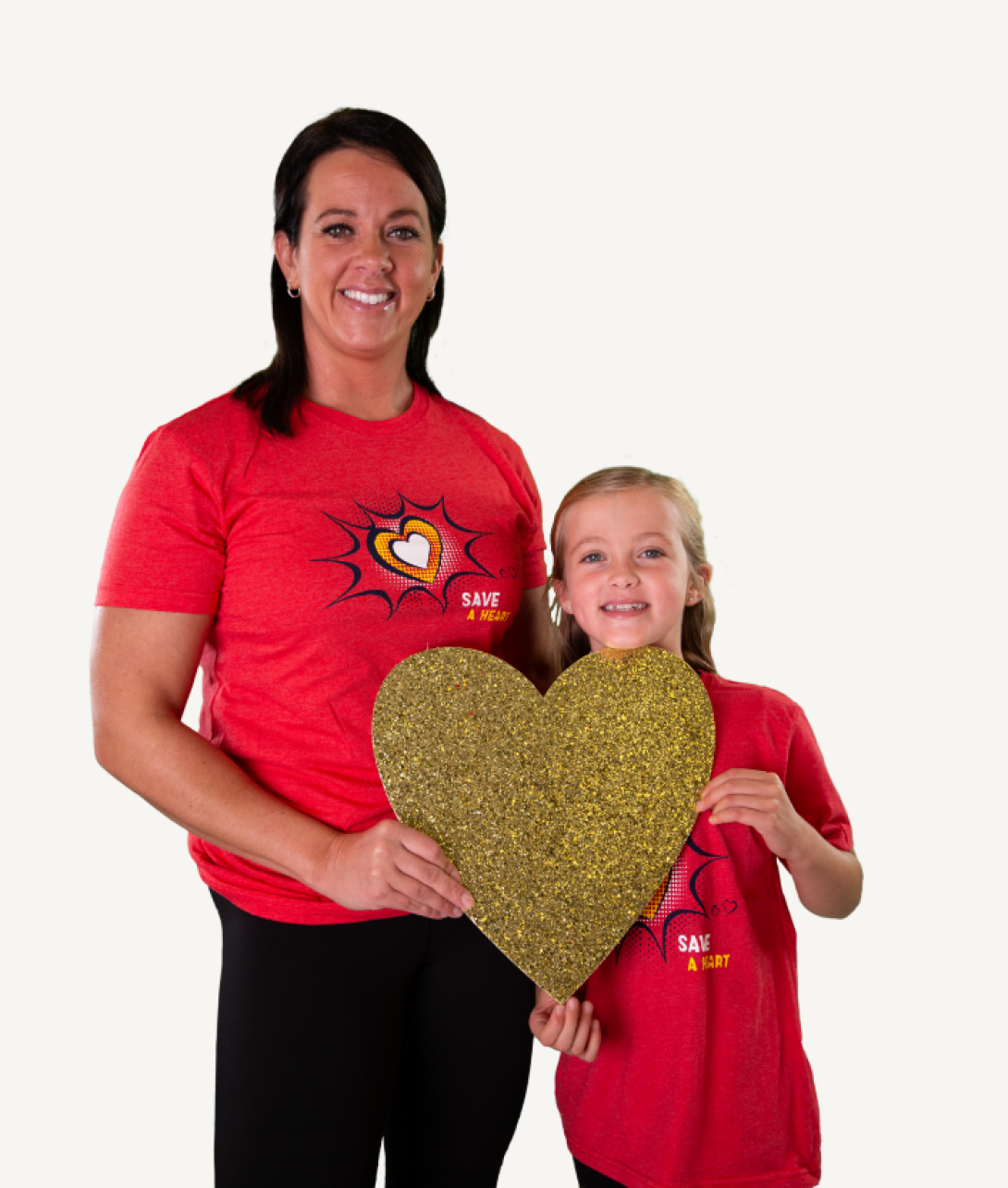
Every year, about one in 100 babies in the U.S. are born with heart defects. During National Heart Month in February, University of Michigan Health C.S. Mott Children’s Hospital launches the Save A Heart campaign to draw attention to this.
The fundraising effort helps make advancements in research, treatments, and care for children with heart defects possible and raises awareness of people born with heart conditions. It also provides crucial support for children and families going through tremendously difficult times.
The Impact of Congenital Heart Defects on Families
A congenital heart defect diagnosis often comes as a shock during pregnancy. “After having three healthy children with normal pregnancies, we thought we were on autopilot by now,” says Colongie, whose son Josiah was diagnosed with transposition of the great arteries (TGA) and ventricular septal defect (VSD) during her pregnancy.
Even for Danielle, another expectant mom who herself has tetralogy of fallot (four structural defects in the heart), learning her daughter Lillian had inherited the defect was devastating news.

Both Josiah’s and Lillian’s families had to wait until their children were born to move forward with treatment, which was open-heart surgery just days after birth. “We had so many doctors and nurses it was overwhelming, but also comforting that they were all there to help us,” says Danielle. “Despite our fear and anxiety, they made it a smooth experience.”
Lillian has gone on to have several surgeries over the course of her young life. For every procedure, U-M Child and Family Life specialists put a bead on a necklace for Lillian to commemorate her strength and resilience in the face of extraordinary medical challenges.
It’s been years since the tumultuous start of their lives and Josiah and Lillian are doing well. Seven-year-old Josiah is tackling first grade with gusto — learning to read and making friends with everybody. “He’s never met a stranger. He just talks to everyone,” says his mother Colongie. And 8-year-old Lillian plays soccer in the spring, basketball in the winter, and is excelling in school. “When she was born, we never would have thought this is where she would be today,” says Danielle.
Ways to Help
Life-changing care for kids like Josiah and Lillian is only possible because of donor support that funds critical research and advanced training that benefits patients everywhere.
Want to make a difference for the many families who will face a congenital heart defect diagnosis in the coming years? Here’s how you can help:
• Make a donation to the Save A Heart fund.
• Start an online fundraising page to raise awareness and pool resources with your friends and family.
• Buy a t-shirt to benefit the Save A Heart campaign and show your support.
• Spread the word by following and sharing C.S. Mott Children’s hospital social media messages.
• Attend our superheroes-themed Save A Heart Gala for a fun evening that gives back.
Join our efforts today to improve the lives of children with heart defects!





